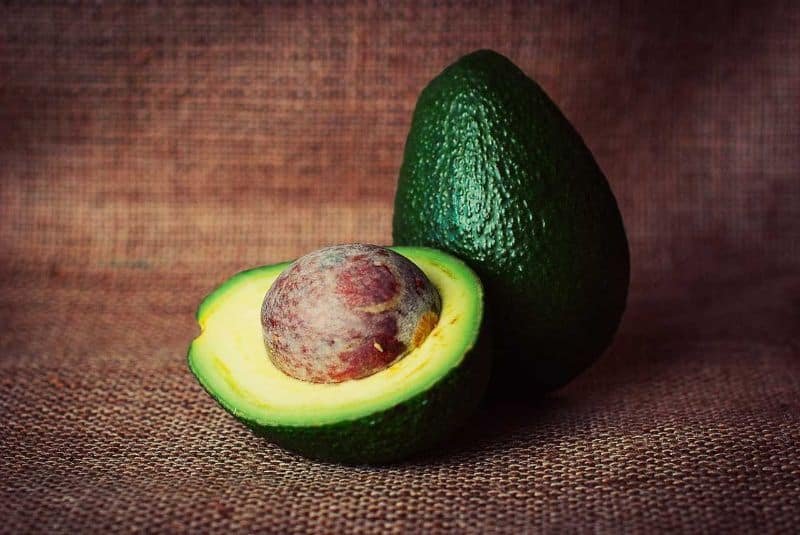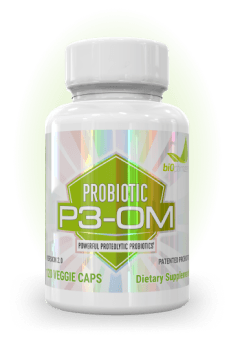List With 26 Best Foods for Irritable Bowel Syndrome And Foods To Avoid

In this article we present a list with the best foods for irritable bowel syndrome as well as information on what foods to avoid, benefits of not having IBS and other useful information around Irritable Bowel syndrome.
What is Irritable Bowel Syndrome
Irritable bowel syndrome is a common gastrointestinal disorder that is characterized by abdominal pain, bloating, diarrhea, and constipation.
The exact cause of irritable bowel syndrome is unknown, but it is believed to be related to a combination of factors, including genetics, diet, stress, and the environment.
There are a number of dietary changes that can help to relieve the symptoms of irritable bowel syndrome, and certain foods may be particularly beneficial.
What Are The Different Types Of IBS
There are two different types of IBS: constipation-predominant IBS (IBS-C) and diarrhea-predominant IBS (IBS-D).
IBS-C is characterized by hard, difficult-to-pass stools. IBS-D is characterized by loose, watery stools.
IBS can also be classified as mild, moderate, or severe. Mild IBS typically causes occasional symptoms that are not bothersome. Moderate IBS causes symptoms that are bothersome and interfere with daily activities. Severe IBS causes severe symptoms that can disable a person.
Best Foods for Irritable Bowel Syndrome
Probiotic-rich foods.
Probiotics are live bacteria that are beneficial for gut health. They can help to reduce inflammation, balance the immune system, and improve digestion. Probiotic-rich foods include yogurt, sauerkraut, kimchi, and tempeh.
- Sheep or goat’s yogurt has been found to be the most tolerated and beneficial yogurt for people with irritable bowel syndrome.
- Sauerkraut is a probiotic-rich fermented food that is also high in fiber. Read Also: Here’s Why Sauerkraut Is Better Than Probiotics.
- Kimchi is a Korean dish made from fermented cabbage and other vegetables.
- Tempeh is a fermented soybean product that is high in protein and fiber.
You Might Be Interested in:
BiOptimizers P3-OM Probiotics Review [Science Based]
Healthy Gut 101: Probiotics & Prebiotics Benefits and How they Affect Your Gut [Infographic]
Probiotics help body survive harmful effects of chemo better than antibiotics
Soluble fiber Foods
Soluble fiber dissolves in water to form a gel-like substance. It is found in oats, barley, apples, oranges, flaxseeds, and Psyllium husk. Soluble fiber can help to bulk up stools, reduce inflammation, and ease bowel movements.
- Oats have a high soluble fiber content and are also a good source of protein. It is one of the best foods for irritable bowel syndrome on this list.
- Barley is another whole grain with a high soluble fiber content.
- Apples contain both soluble and insoluble fiber, as well as other nutrients that are beneficial for gut health.
- Oranges are a good source of soluble fiber, as well as vitamin C and other antioxidants.
- Flaxseeds are a plant-based source of soluble fiber. They also contain omega-3 fatty acids, which are anti-inflammatory.
- Psyllium husk is a type of soluble fiber that can be taken as a supplement. It is often used as a natural treatment for constipation.
Insoluble fiber
Insoluble fiber does not dissolve in water and is found in foods such as wheat bran, vegetables, nuts, and seeds. It helps to add bulk to stools and can also help to reduce constipation.
- Wheat bran has a high insoluble fiber content and is often used as a natural treatment for constipation.
- Vegetables, such as broccoli, cabbage, and Brussels sprouts, are also good sources of insoluble fiber. Vegetables are among the best foods for irritable bowel syndrome and one of the most abundant food sources that you can get your hands on.
- Nuts and seeds, such as almonds and flaxseeds, contain both soluble and insoluble fiber.
Healthy fats
Healthy fats are found in olive oil, avocados, fatty fish, nuts and seeds. They can help to reduce inflammation and improve gut motility. More specifically:
- Olive Oil is a source of healthy monounsaturated fats and has also been shown to have anti-inflammatory properties.
- Avocados are a good source of healthy fats and fiber. They also contain other nutrients that are beneficial for gut health, such as potassium and vitamin C.
- Nuts, such as almonds and walnuts, are a good source of healthy fats, fiber, and antioxidants.
- Seeds, such as flaxseeds and chia seeds, are a good source of healthy fats, fiber, and minerals.
- Fatty fish such as salmon, mackerel, and sardines are also good sources of healthy fats.

Other Foods
- Bone broth – Bone broth is rich in protein and minerals, and it also contains collagen, which is beneficial for gut health. Collagen can help to heal the mucosal lining of the gut, reducing inflammation and promoting regularity.
- Ginger – Ginger is a digestive aid that can help to relieve nausea, vomiting, and bloating. It also has anti-inflammatory properties and can help to reduce abdominal pain.
- Peppermint – Peppermint is a herb that has traditionally been used for digestive problems. It can help to relax the muscles of the digestive tract, easing bowel movements and relieving pain.
- Chamomile – Chamomile is a herb that has been used for centuries as a natural remedy for digestive problems. It can help to relieve gas, bloating, and stomach cramps.
- Turmeric – Turmeric is a spice that contains curcumin, a compound with powerful anti-inflammatory and antioxidant properties. Curcumin can help to ease symptoms of irritable bowel syndrome, including abdominal pain and bloating.
- Green tea – Green tea is rich in antioxidants and has been shown to reduce inflammation. It can also help to improve gut motility and relieve constipation. Matcha green tea is one of the best types of green tea to consume as it has been proven to have 10X more antioxidants than normal green tea and more chlorophyll which can help to cleanse the gut. Check 14 Matcha green tea Health Benefits According to Science – if you have time.
- Legumes – Legumes such as beans, peas, and lentils are a good source of fiber, protein, and antioxidants. They can also help to improve gut motility and reduce constipation. There are among the best foods for irritable bowel syndrome (make sure you chew them and cook them well avoid bloating.
- Water – Water is THE SIMPLEST and one of the best foods for irritable bowel syndrome. Water is essential for good health and regularity. It helps to keep stools soft and easy to pass. The recommended daily intake of water is 8-10 glasses per day.
While there is no one-size-fits-all diet for irritable bowel syndrome, these foods may help to ease symptoms and promote gut health. It is important to work with a registered dietitian or other healthcare provider to create an individualized meal plan.
What Foods To Avoid To Prevent Irritable Bowel Syndrome
While there are many foods to eat that will help you overcome Irritable Bowel syndrome there are foods that you need to avoid in order to prevent IBS. As they say, prevention is the best medicine.
Specifically, you need to avoid foods that are
These are all known to trigger IBS symptoms. So, if you want to prevent IBS flare-ups, it’s best to steer clear of these foods.
In addition to the specific food items listed above, you should also avoid large meals. Eating smaller, more frequent meals is easier on your digestive system and will help to prevent the onset of IBS symptoms.
Finally, you need to make sure that you’re getting enough fiber in your diet. A diet that is low in fiber is a common trigger for IBS symptoms. So, make sure to eat plenty of high-fiber foods, such as fruits, vegetables, and whole grains.
Also don’t forget to cut-off gluten foods from your diet. Gluten is a protein found in wheat, barley, and rye. It can cause inflammation in the gut and trigger IBS symptoms. If you have IBS, you may need to avoid gluten-containing foods.
By following these simple dietary guidelines, you can help to prevent the development of IBS.

What Are The Benefits Of Eliminating Irritable Bowel Syndrome
There are a number of benefits to eliminating irritable bowel syndrome.
Overall, there are many benefits to eliminating irritable bowel syndrome. If you suffer from IBS, it is worth considering treatment options that could help you to achieve relief.
What Are The Different Types Of Treatment For Irritable Bowel Syndrome
There are a number of different types of treatment for irritable bowel syndrome.

P3-OM Probiotics
P3-OM™ is a transient probiotic that eliminates bad bacteria fast, eats up excess sugar and protects your gut from inflammation and viruses.
It is one of the best probiotics supplements currently in the market with proven results.
Who Is At Risk For Developing IBS
Anyone can develop IBS, but there are certain factors that may increase your risk.
For example, women are more likely to develop IBS than men. This may be due to hormones, as IBS symptoms often worsen during menstruation.
People with a family history of IBS are also at an increased risk. This suggests that there may be a genetic component to the condition.
Finally, people who suffer from anxiety or depression are also at an increased risk for developing IBS. This may be due to the fact that these conditions can contribute to gastrointestinal problems.
You might be interested in these articles as well
Top 10 Best Supplements For Anxiety Based on Research
Best Foods For Depression Based On Research: Top 12 Foods That Help Fight Depression
14 Best Foods for Premenstrual Syndrome And What To Avoid
What Are The Complications Of IBS
IBS can lead to a number of complications, such as:
When Should I See A Doctor
You should see a doctor if you experience any of the following:
These symptoms may be indicative of a more serious condition, such as inflammatory bowel disease.
You should also see a doctor if your IBS symptoms are interfering with your daily life. Your doctor can help you to find the best treatment option for you.
Conclusion
Irritable bowel syndrome is a common condition that can cause a number of bothersome symptoms. There are a number of treatment options available, and most people with IBS are able to find relief.
By simply adding more fiber to your diet, you may be able to reduce your symptoms. If this does not work, there are a number of other options, such as over-the-counter medications and natural remedies. Surgery is typically only considered as a last resort.
If you are experiencing bothersome symptoms, see your doctor. They can help you to find the best treatment option for you.
